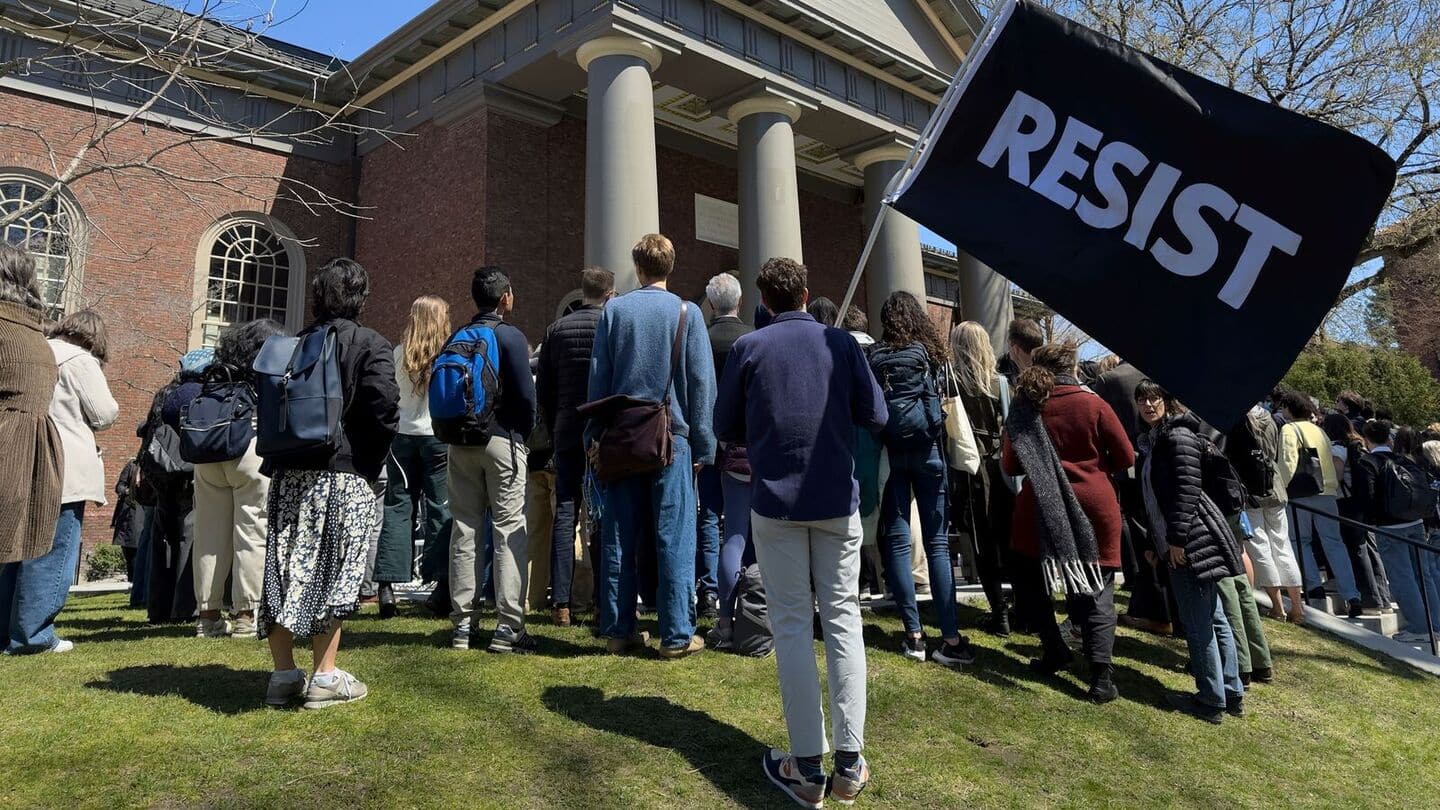
Judge blocks Trump's order barring Harvard from enrolling foreign students
What's the story
A US federal judge on Friday blocked the Trump administration from revoking Harvard University's ability to accept foreign students, only hours after the college sued the administration for the unexpected ban. District Judge Allison Burroughs, appointed by former President Barack Obama, issued the temporary restraining order halting the policy. In the suit, filed in federal court in Boston, Harvard claimed the action violates the First Amendment and will have an "immediate and devastating effect" on more than 7,000 visa holders.
Student impact
Harvard's lawsuit highlights potential impact on student body
"With the stroke of a pen, the government has sought to erase a quarter of Harvard's student body," it said in its suit. The university enrolls nearly 6,800 foreign students from over 100 countries, most of whom are graduate students. The university had said that it planned to file for a temporary restraining order to prevent the Department of Homeland Security (DHS) from enforcing the ban.
Global response
DHS demands records on foreign students
The DHS announced the move Thursday, accusing Harvard of creating an unsafe campus environment by allowing "anti-American, pro-terrorist agitators" to assault Jewish students on its premises. It further accused the institution of working with the Chinese Communist Party, claiming that the school has hosted and trained members of a Chinese paramilitary outfit as recently as 2024. Homeland Security Secretary Kristi Noem said Harvard can regain its ability to enroll foreign students if it produces records on them within 72 hours.
Request
This administration is holding Harvard accountable
Her request included any information, including audio and video recordings, of international students who participated in protests or risky activities on campus. "This administration is holding Harvard accountable for fostering violence, antisemitism, and coordinating with the Chinese Communist Party on its campus," Noem said in a statement. The dispute started on April 16 when Noem asked Harvard to turn over information about foreign students that could link them to violence or protests, which might result in their deportation.